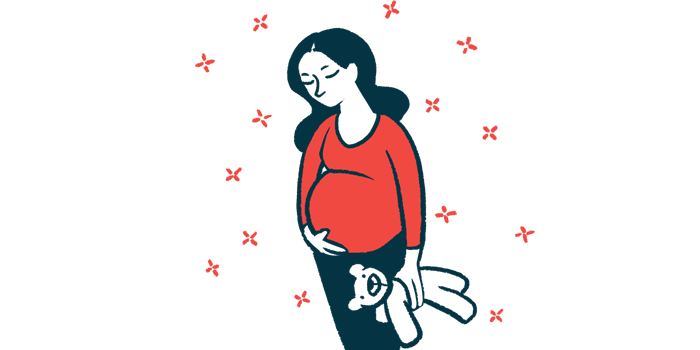Higher risk of heart disease found in babies of Sjögren’s mothers
Study in China suggests extra monitoring for complications during pregnancy
Written by |

Newborns of mothers with primary Sjögren’s disease may be at a higher risk of developing heart conditions.
That’s according to a study in China, which also found this increased risk was significantly associated with higher maternal disease activity.
“Maternal [primary Sjögren’s], especially with high disease activity, elevates the risk of neonatal heart disease, highlighting the need for careful monitoring during pregnancy,” the researchers wrote.
The study, “Risk of heart disease in neonates born to mothers with primary Sjögren’s syndrome: a multicenter retrospective study,” was published in Rheumatology.
Sjögren’s disease is a chronic autoimmune disease in which the immune system mistakenly attacks the body’s healthy tissues, particularly the glands responsible for producing tears and saliva, often leading to symptoms such as dry eyes and mouth. Other organs may also be involved.
The condition is much more common in women, especially in those ages 40 and older, although it can develop at any age.
For women with primary Sjögren’s, pregnancy can pose persistent immune activation, which increases inflammation and may trigger complications; the transfer of autoantibodies through the placenta, which can interfere with fetal development; and the need to manage immunosuppressive therapy carefully to balance maternal health with fetal safety.
“The impact of primary Sjögren’s … on adverse pregnancy outcomes remains a debated issue,” the researchers wrote. “Research suggests that newborns of mothers with [primary Sjögren’s] may be at a higher risk of developing heart conditions.”
The study and its findings
In light of these concerns, researchers in China set out to evaluate the relationship between maternal primary Sjögren’s and the risk of heart disease in 169 newborns.
Among the babies, 49 were diagnosed with heart disease. Compared with their unaffected peers, these newborns had a higher rate of premature birth, lower birth weight, and significantly worse outcomes at birth. They had a significantly increased risk of having complications, such as infections and neonatal asphyxia, or difficulty breathing at birth, leading to brain injury.
Importantly, mothers of babies with heart conditions also had more pregnancy-related complications, including umbilical cord abnormalities and risk of premature delivery.
The study also found that lower maternal blood levels of complement proteins C3 and C4, as well as the use of immunosuppressants such as glucocorticosteroids and ciclosporin A, were significantly associated with the development of heart disease in newborns.
These proteins are part of the complement cascade, a key component of the immune system that helps the body fight off disease-causing invaders. In Sjögren’s, the complement system is known to play a role. Although the exact reasons for decreased blood levels of C3 and C4 remain unclear, these reductions have been linked to more severe symptoms, increased disease activity, and greater tissue damage over time.
To assess maternal disease severity, researchers used the European Alliance of Associations for Rheumatology Sjögren’s Syndrome Disease Activity Index (ESSDAI), a standardized scoring system that evaluates disease activity across 12 organ systems. They found that higher ESSDAI scores, indicating more active disease, were significantly associated with a 50.3% increased risk of heart disease in newborns.



